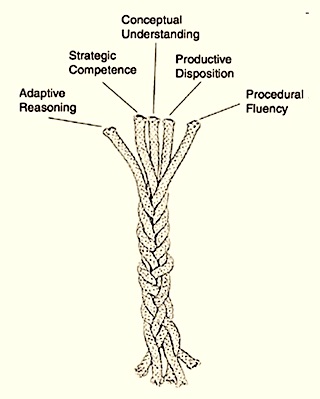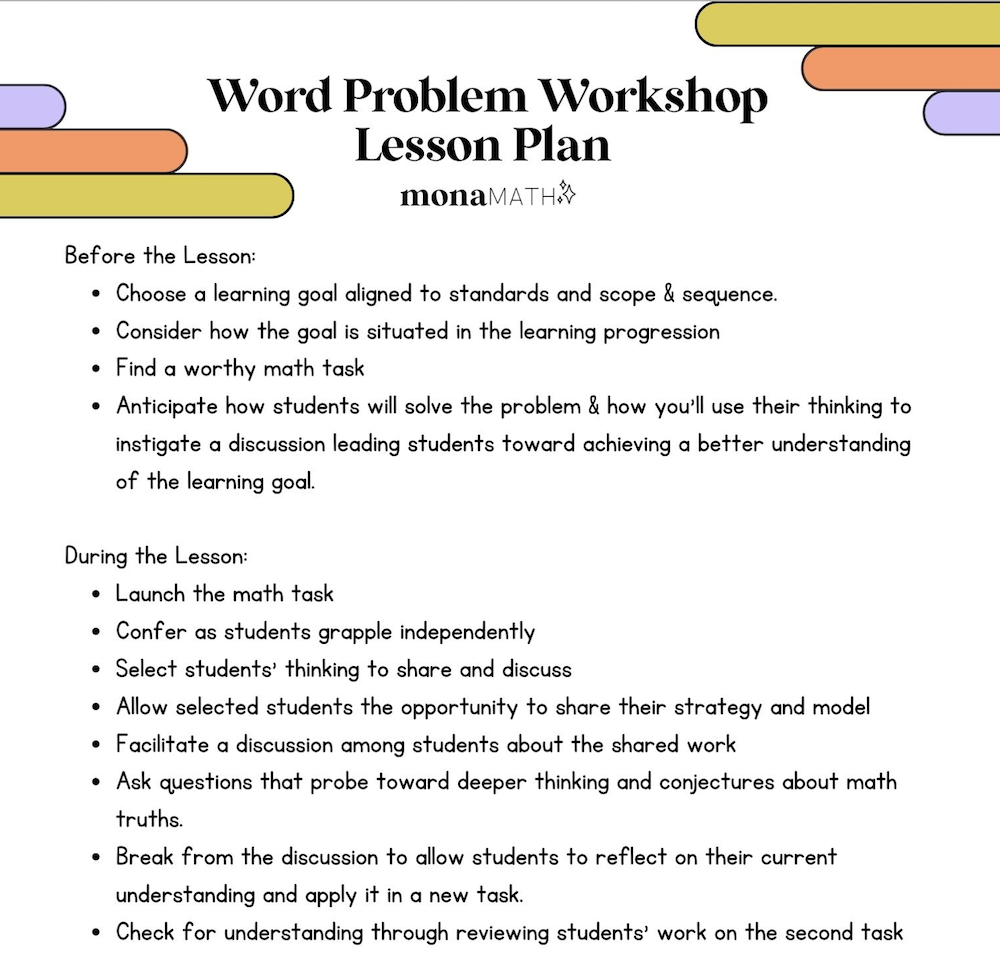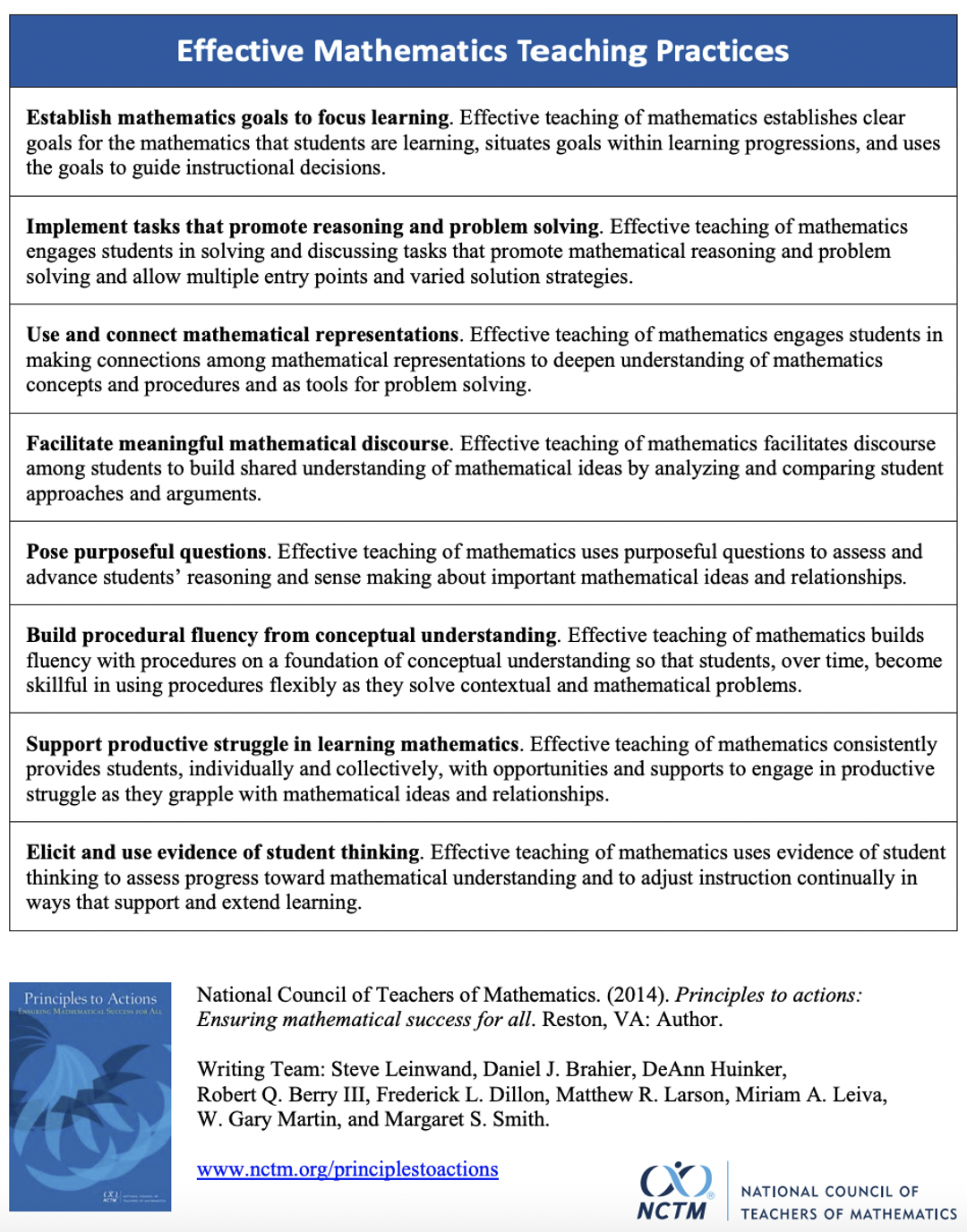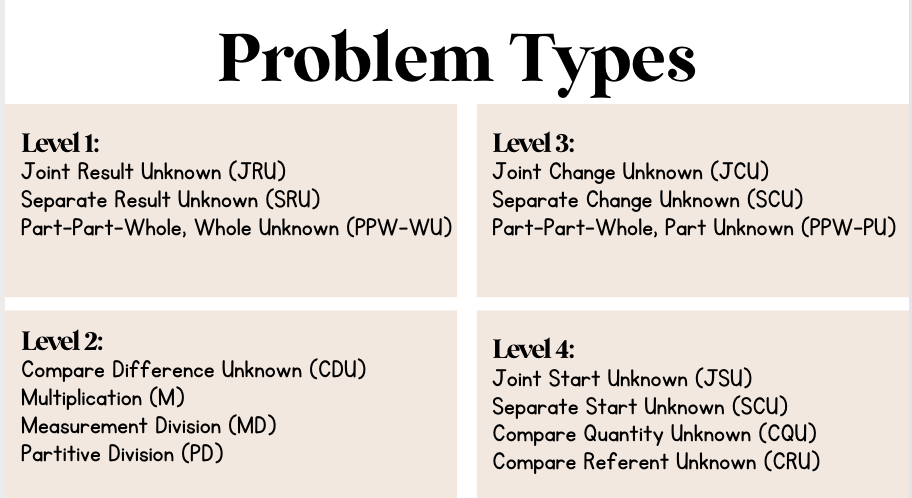A Plan for All Kids to Build Math Proficiency
By Mona Iehl

Each student’s eyes glued to the speaker, then examining their work carefully. The students excitedly describing their thinking, and others responding with the sign language for “same.”
It was in that moment I realized that I didn’t need gimmicks or games to get my students invested and engaged in math. Instead, my lesson plan motivated students to participate and think deeply about math. The lesson plan gave students the time to share their own ideas and the insights they gained from hands-on exploration.
Student engagement is not only or always due to the lesson plan format. However, this particular lesson plan changed everything for me. It flipped the script on what I had been doing for years and even how I had been taught. As a result, I no longer tell students what to do and then send them off to follow my directions – mimicking my instructions in hopes of committing the procedure to memory.
Instead, the Word Problem Workshop lesson plan I use now asks students to think first, explore, and attempt the problem using their background knowledge (while simultaneously building their self-efficacy). It’s only after they’ve had time to think for themselves that we share and discuss while trying to make conjectures about math truths.
Giving Students Space to Figure Things Out
The Word Problem Workshop lesson plan helped me realize teaching math was just like teaching everything else. You have to allow students to bring themselves to the work – letting them use what they know and are able to do to figure things out. Then, we can help them organize and make sense of the mathematics.

Math proficiency was defined in 2001 in the National Research Council book Adding It Up: Helping Children Learn Mathematics using an image of a rope with 5 strands. The strands are interwoven to represent how math proficiency is made up of these five entwined competencies.
The 5 strands include conceptual understanding, procedural fluency, strategic competence, adaptive reasoning, and productive disposition. (Listen to a quick explanation of each on the Honest Math Chat podcast by visiting MonaMath.com/5-strands).
Math proficiency is more than just completing workbook pages and memorizing procedures. Instead, students must experience math in order to learn to understand, reason, and problem solve. Using this lesson plan that provokes mathematical behaviors that go beyond mimicking and following steps is essential to my students’ mathematical success.
Zoom in on the Elements of the Lesson Plan
You might be scratching your head asking yourself, “How is this different than what I already do?” The truth is, it might not be. However, the planning and facilitation of this lesson plan incorporates some key elements I want to point your attention to and possibly deepen what you already do.
This lesson plan is designed to allow students to be in the driver’s seat. The teacher is not planning for how they will show students what to do – or what they will do when students make a mistake. Instead, we are preparing the way with all the appropriate support that students might need when they take center stage to try to solve the problem and subsequently describe their thinking and justify their reasoning.
The National Council for Teachers of Mathematics supports 8 Effective Teaching Practices in their book Principles to Actions: Ensuring Mathematical Success for All. I want to highlight five of those effective teaching practices in this lesson plan.
✻ Establish mathematics goals to focus learning
Choosing a learning goal is vital to the success of the Word Problem Workshop lesson. The goal must be appropriate for the group; students are challenged but not overwhelmed. The goal should land within the zone of proximal development for students to ensure they can productively struggle. This requires that we know our students well and use evidence from their work and discussions to determine where they are in the progression of understanding a given math concept.
✻ Choose tasks that promote reasoning & problem solving
Choosing a math task can feel overwhelming at first. However, understanding the different problem types (see image) will help you write and select tasks that are aligned to your learning goals. The Word Problem Workshop lesson plan is best done daily so that students have an opportunity to engage with various problem solving tasks every day, not just saving it until once they’ve memorized the procedures.
✻ Support productive struggle in learning mathematics.
When we give students the opportunity to solve difficult tasks independently, they develop self-efficacy after some struggle. When students believe they are able to reach challenging goals, they are willing to put forth more effort and therefore are more intrinsically motivated. Too often in math we make the problem as simple as possible to help our students understand. Instead, in the Word Problem Workshop lesson plan we are intentional and thoughtful about the challenge we give our students to build their math proficiency and math identity.
✻ Facilitate meaningful mathematical discourse
I find students often skip the analyze-and-compare parts of the math task. The Word Problem Workshop lesson plan embeds mathematical discourse every day to build the skills of analyzing and evaluating arguments. The daily discussion practice allows students the opportunity to rehearse their reasoning and eventually improve their written expression.
✻ Pose purposeful questions.
The questions we ask can very quickly take away the opportunity for students to think. Our questions must probe their thinking and lead to deeper thinking. Questions should be open ended, not leading or funneling. (More on questions here.) When asking questions during the discussion, keep in mind that students’ thinking should drive the discussion. If we are thoughtful and pre-plan questions by reflecting on how students might solve, we’re able to make better in-the-moment decisions on what questions to ask.
Math Identity + Math Proficiency
The Word Problem Workshop lesson plan is focused on providing an opportunity for students to experience math and practice the behaviors of mathematicians. The goal is to ensure that students build not only math proficiency, but a math identity where they feel confident in their ability to problem solve and share their ideas in math discussions.
No more children get to leave our class thinking they aren’t “a math person,” or that they just aren’t cut out to be a doctor because they aren’t fast enough at solving math problems. Instead, as we work through this lesson plan, we empower our students with the ability to set goals, take a risk, persevere through challenges, and rely on their community discussion to deepen their understanding.
The Word Problem Workshop lesson plan can become the daily routine that empowers your students to be mathematicians.
ALSO SEE MONA’S ARTICLE:
A Single Open Math Task Can Work for Every Student
Mona Iehl (@HelloMonaMath) has been a fifth- and sixth-grade math teacher in Chicago, Illinois for six years. She started her 14-year year teaching career in the primary grades but found her home in the middle grades. In the fall of 2023 she will take on the role of coach. For more details about her teaching methods, visit her website and see her other MiddleWeb posts here.
Mona recently took her passion for helping teachers and students find their inner mathematician to a podcast. Listen in at @HonestMathChat. More fluency resources for multiplication and division systems are available at her Mona Math TPT shop.

































